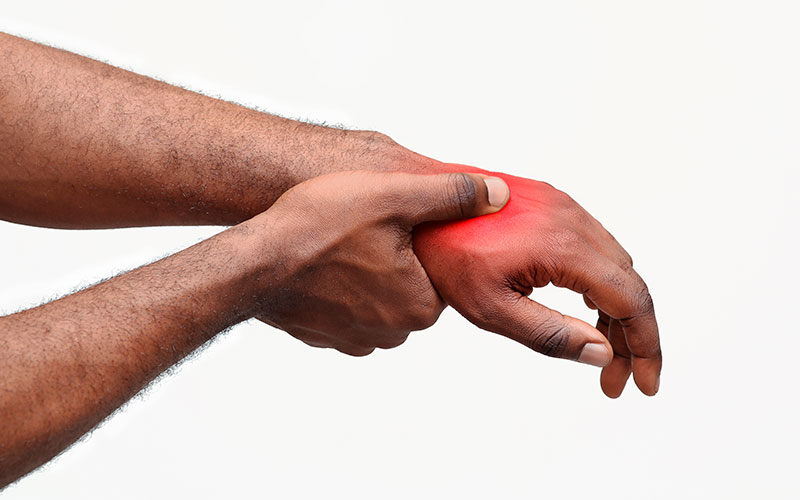Facet Joint Arthritis
Facet joint arthritis, often called spinal osteoarthritis or facet joint syndrome, is a degenerative condition that leads to pain and stiffness in the neck and back. It worsens over time and often develops along with other conditions such as degenerative disc disease and spinal stenosis.

What is facet joint arthritis?
Facet joint syndrome is a spinal condition that is often at the source of significant neck and back pain. It’s caused by the breakdown of cartilage in the facet joints (the joints between the spine bones), which results in inflammation and pain. In general, symptoms can be managed through physical therapy, medication, and nerve blocks or ablations, but in chronic cases, surgery is needed to fuse the joint.
What causes facet joint arthritis?
Facet joint arthritis occurs most commonly in women and men between the ages of 40 and 70, as well as those who are predisposed to arthritis or have had a spinal injury.
Degenerative changes are usually at the root of the condition, and are caused by the thinning of the joint capsule, which leads to the break down of smooth cartilage, creating an uneven surface, and bone spurs (a pointed bone outgrowth) can form. These changes mean that the joint can no longer move smoothly, resulting in inflammation, which fires off signals to the brain, causing pain, stiffness, and spasms. Facet joint arthritis usually originates in the vertebral disc.
When should you see a doctor?
Facet joint arthritis can’t be reversed or cured, but there are a number of lifestyle changes and non-surgical interventions that can help manage the symptoms and slow it’s progression.
Your doctor will help you develop a self-care plan that includes improving spinal alignment and posture when standing, sitting, and sleeping. Weight loss may also be recommended to reduce the load on your facet joints. Physical therapy and exercise are also recommended, and through a combination of exercises and demonstrations, you can work towards stretching and strengthening your back. In some cases, anti-inflammatories and muscle relaxers are prescribed to manage painful episodes. Steroid joint injections can also be helpful in offering pain relief.
Other interventions include:
- Nerve radiofrequency ablation, this procedure burns the small nerves in the joint.
- Surgery, if other treatments do not offer pain relief, spinal fusion surgery may be necessary.
Keep in mind that injections or ablations help manage the symptoms but have no impact on the underlying spinal degeneration.
Make an appointment
If you have ongoing back and neck pain, it is important to seek the services of a specialist who will diagnose the source of the pain and develop a treatment plan to restore movement and manage the symptoms. At Northwest Surgical Specialists, our team of experienced doctors has the experience and expertise to ensure that you get the advice and help you need.